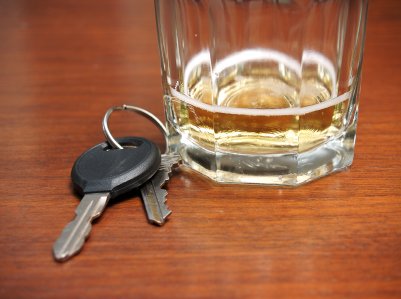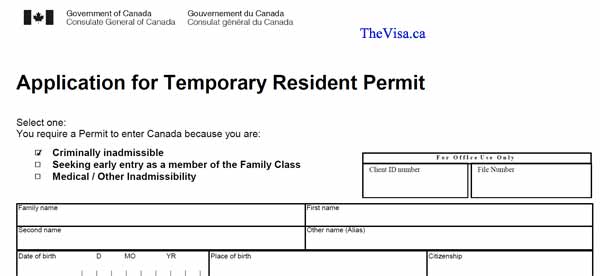Entering Canada with DUI

Everyday people decide to drink and get behind the wheel. Unfortunately, they hardly realise the risk they get into. The risk is not their lives alone, but to those of innocent people and families they land-up devastating. Under Canadian law DUI is serious charge, by entering Canada with DUI it is most likely that the Canadian border officer will see your DUI on the system and will deny you entery into Canada.
Does DUI in Different State Affect Your Entry to Canada?
Drunken driving laws can vary from state to state. The degree of enforcement and punishments vary from one state to another. Different state use different terms for drunk driving. Some term it DUI (driving under the influence), others use DWI (driving while intoxicated), and yet others call it OVI, DWAI, or OWI.
Most states have taken drunk driving seriously and taken stringent measures for deterrence like "zero tolerance" laws for driver's under 21, specifying measurable amount of intoxication while operating motor vehicles and implied consent laws making it illegal to refuse a breathalyzer.
DUI in California
California has a "zero tolerance" law for drivers under 21 from operating a motor vehicle with any amount of alcohol in their system. Any person with a commercial driver's license, are considered impaired and charged with drunk driving with a BAC of 0.04% or greater. Driving under the influence of alcohol and/or drugs carries stiff punishments in California.
DWI in Texas
In Texas, driving while intoxicated ("DWI") is defined by the Texas Penal Code as an offense which occurs when a person is intoxicated while operating a motor vehicle in a public place. Intoxication typically involves a blood alcohol concentration of .08 or higher.
DUI in Florida
The State of Florida drunk driving laws prohibits driving any type of vehicle with a blood alcohol concentration (BAC) of .08 percent or above. The .08 percent BAC limit is the standard measurement used across the United States for the "impaired" driver. This limit is lower for drivers of commercial vehicles (.04%) and virtually non-existent for drivers under the age of 21 (.02%). If you are arrested or convicted of drunk driving (DUI) in Florida you most likely be denied entry into Canada.
DUI in Montana
The State of Montana prohibits driving with a .08 percentage or above, blood alcohol concentration (BAC). The .08 measurement is the standard used across the United States for the "impaired" driver. The State of Montana has lower BAC limits for minors and drivers of commercial vehicles. In addition to the .08 BAC law, Montana also considers a .04 percent a DUI if that fact is considered with other competent evidence. The State of Montana shares a border with Canada. Americans who live in Montana usually require access to Canada. If you cross the border to Canada and you have a DUI in your record, it is most likely that the border officer will deny you access to Canada since you have a DUI.
DUI in North Dakota
In North Dakota, If you are arrested for a DUI, you will face both criminal court penalties and administrative penalties against your driving privileges. If convicted, you'll be required to pay fines, serve jail time, wait out a ND driver's license suspension, complete an alcohol education program, and pay reinstatement fees. This limit is lower for any driver is 0.08% drivers of commercial vehicles is .04% and 0.02% for drivers under the age of 21
Americans who live in North Dakota usually love to go to Canada for fishing, hunting and also for business trip. ND is big in farming, gas (fracking) and oil, so resident of ND usually like to go to Canada for leisure. Having two borders with Manitoba and Saskatchewan there is lots of border crossing done by US citizen between US and Canada. Having a drunken driving offense on your record will cause issues when crossing the border. It is best that you learn about how to overcome this before it is too late.
DUI in Idaho
In the state of Idaho, it is illegal to operate a motor vehicle if your blood alcohol level is 0.08 percent or higher. Idaho is also considered to be a Zero Tolerance state in terms of underage DUI. What this means is that any driver under the legal drinking age will be considered DUI if his or her blood alcohol level is over 0.02 percent. It doesn't matter if you are flying or driving across the border, having a DUI in Idaho will make you inadmissible to enter Canada according to Canadian Immigration laws.
DUI in Washington State
The state of Washington employs a tiered system for sentencing regarding DUI cases, with lower penalties for offenders with .08 BAC and higher penalties for offenders possessing a BAC at or above 0.15. Likewise, violations such as refusals to submit or associated criminal charges related to a given DUI arrest may incur additional administrative or criminal penalties. State of Washington having a big border with Canadian province of British Columbia, resident of Washington do frequent border crossing between the two countries. Whether you going for site seeing, romantic trip or a skiing trip to BC, by having a DUI you may be ineligible to enter to Canada. Contact us to see how we can help you enter Canada even if you have a DUI on your record.
Entering Canada with DUI
Canada considers drunken driving (DUI) to be a serious offence. Across Canada, impaired driving is driving with a blood alcohol concentration (BAC) above .08 or driving while impaired by alcohol or drugs. It is a serious offence to fail to give a breath sample when requested by police, with penalties the same as those for driving while impaired. A first offence conviction of impaired driving results in a criminal record, a minimum $1000 fine, and a driving prohibition for a minimum of two years.
It comes as a surprise to Americans that they are likely to be denied entry at the Canadian border if they have a record of alcohol related offences. It does not matter if the person is coming as a passenger in another person's car, or the person has no intention to drive in Canada or the offence was classified as a misdemeanour or felony. Until you are able to prove that a favorable disposition was reached (such as a court document) you will need a Temporary Resident Permit (TRP) to enter Canada. Depending on the merits of the application a Temporary Resident Permit TRP could allow multi-entry admittance for as long as 3 years. As a general rule, the older your conviction (10 years or more), the better the chance that you have of being allowed to enter Canada without filing for a waiver.

